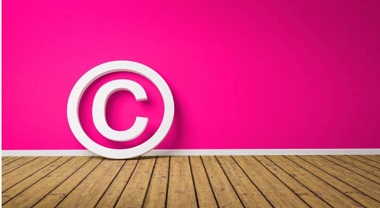Ownership of Copyrights Patents and Trademarks
Appreciating art, culture, and innovation is a prevalent practice for ages. The encouragement towards innovation is legalized under Intellectual copyrights patents and trademarks Rights are provided by the states around the globe. The IP dive pertains to all the original creations of humankind inclusive of technical or any scientific innovation. These rights have the sole purpose and that it so protects and confer the creation or an invention specific to a certain period. With no hidden atrocities the labor intended to be associated with the innovation should be given their due diligence and the public can to emanate from the same. The protection of the trade secrets (the specific and confidential information about the production of the company and give the business a competitive advantage in the industry) can be legalized under major sub pars including:
- Patents– the protection comes with time strain. It acts as a defense to the ideas and creations that are new and useful to society. This also staves off others the right to sell or make use of the product.
- Trademarks- as the patents protect the inventions, trademarks refer to the unique symbols and phrases used by an organization helping them to distinguish from the others in a competitive market. Unlike patents, trademark protection is held indefinitely.
- Copyright- copyright protection is given to the works of authorship. It must only include music, literary works like art, and much more. With the increasing development in the world, copyright protection has taken up an advanced tour to upgrade its applicability in protecting computer software and architecture.
 Copyright:
Copyright:
The copyright protection is given by Indian Law under The Copyright Act, 1957, supported through Copyright Rules, 2018. In early 2012, there has been substantial amendments to the Act, copyright protection involves dramatic, musical, any original piece of literary work including cinematography films, etc.
- Is Copyright registration mandated in India?
The registration is not treated as a prerequisite to acquiring the copyright of any literary work. Notwithstanding this mandating step, the Copyright Act provides the registration procedure, which unlike the U.S. Law does not confer specific rights or even privileges to the registered work. The documents which are certified by the Registrar of Copyright can be presented in the court of law as evidence, in case of the original work cannot be presented for the time being. Hence, it provides an upper hand when in time of the essence and when there are urgent orders, registration is of tremendous help.
Ownership of Copyright & Work for Hire (Independent Contractors and Employees):
The first owner of any creation is the author themselves but in certain conditions as laid down in Section 17 of the Copyright Act, other individuals can be regarded as the first owner of the copyrighted work in the reference. The concept of the Indian Copyright Act, there are two perspectives which can be discussed, it is the Authorship rights of the employers concerning the context of the employment-based on contract, firstly about freelancers and secondly the employees. The concept is important that when any artistic work (like newspaper or magazine) is created and is done during the employment or under the obligation of the contract of apprenticeship, and is for the reason for publication, the proprietor of the publication will be the first owner of the work unless there is a former contract to sabotage this. This may be for a limited period and is only limited to publishing, rendering left of the ownership to the author.
In the case of a portrait or a photograph, when the work is created from any other obligation rather than publication it is extremely periodical; absence of any such contract to the reference, the copyright will be vested on the people under whose instance the work is has been created.
The concept of ‘Work for Hire’ is not expressed well in the Copyright Act but under Section 17, it is implied clearly that any work which is created under the commissioned basis, the copyright to such will be sustained with the person creating the work. If any proprietor is willing to vest the copyright, a written assignment shall be presented.
- Tasini Case (New York Times Co. v. Tasini, 533 U.S. 483 (2001))
A leading decision by the Supreme Court of United States came in Tasini Case in the reference to the issue of copyright in the contents of the database of the newspaper. The New York Times was not allowed legally to license the works of the journalists who were in the newspaper on a freelance basis. The same was restricted when the issues of the newspaper came with the inclusion of electronic databases such as Lexis Nexis.
- T. Thomas & Ors. vs Malayala Manorama Co. Ltd. (7 December 1987)
The contractual relationship between the parties is directly proportional and is based on the distinction between the freelancers and the employees in the case of V T Thomas. The particular case recognizes authorship of the work and was in the form of cartoon series, which was completely in favor of a freelancer Thomas. The disparity exists in the rights over the copyright of a freelancer who has contributed on a periodical basis and the employee who has contributed original work in the due course of the employment.
Conclusion:
The Indian law has rightly maintained the harmony and the probable ownership between the employees and the proprietors. The inferior status towards the right to ownership is pronounced in regards to the functioning under a contract of service. Hence, the overall construction of the Copyright Act is fulfilling the righteous needs.
Author: Sakshi Gupta an intern at IP And Legal Filings, in case of any queries please write back us via email at support@ipandlegalfilings.com.

 Copyright:
Copyright: 

